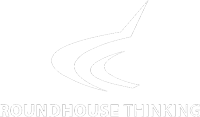30 minutes.
Take the first 30 minutes of each day to plan. Don’t start your day until you have completed your plan. This can be from a simple checklist, diary or even downloading an app to help create a system that best suits you.
There are many methods and theories which people use in order to plan. The most simple would be to create a checklist, noting everything from sending an email to tackling those impending projects. You can then start to prioritise.
Did you say large project?
If you’re in the process of completing a large project you may want to use the SMART acronym (specific, measureable, agreed, realistic, time-framed) to apply your thinking, as this ensures you know what exactly needs to be achieved. The SMART model allows you reach your goals through the measurable targets you set. By deconstructing an overwhelming task, it will allow you to tackle this in smaller and more manageable chunks.
Stop getting distracted!
Time, it’s what we all have in common but it’s how we use it that allows us to achieve. Time management especially plays a key role in the working environment. With important tasks, it’s vital to steer away from distractions. Close all irrelevant browser windows, put your phone away and find a quiet, comfortable place to work.
Two or three?
From your list of tasks, however extensive, identify two or three that are the most crucial to complete and have a go at tackling these first. Yes, you may still have a long list of incomplete tasks, but the important and more time consuming ones will be completed. After doing so, you’ll begin to feel much more positive, allowing your stress levels to reduce and your optimism to flourish!
No, no, no.
It’s important to understand that sometimes you will need to say no to opportunities in order for your tasks to take president. Taking on only those commitments that you know you have time for will be much more beneficial than taking on a range of tasks.
Tidy desk, tidy mind.
Organisation is key. Why not take some time out to clear your desk, after all, small changes go along way. You may not think you are the most ultra-organised person but you’ll be surprised. Creating your own filing system, keeping a diary or using your phone to write notes- whatever method allows you to approach your tasks confidently.
Increase productivity.
Recognising that time management is extremely important increases your personal productivity to achieve a greater work-life balance. Applying this can eliminate time being wasted and improve your performance in and out of work. Getting to grips with a new method to meet those key deadlines will ultimately determine your success in the work force.
Follow @RHThinking for more helpful tips!


